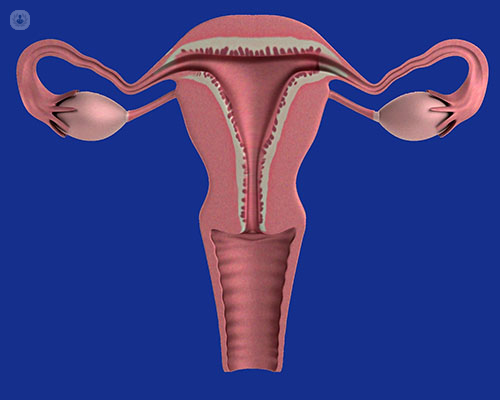Everything you need to know about vaginismus
Written by:Vaginismus is the body’s involuntary reaction to vaginal penetration, causing contractions and pain. In her latest article, esteemed obstetrician-gynaecologist Ms Pushpakala Maharajan explains this condition in detail, including the symptoms, causes and treatment.

What is vaginismus?
Vaginismus is a condition where there is an involuntary muscle spasm that happens as a result of any vaginal examination or intercourse. It is classified as either primary or secondary vaginismus. It is classified as primary if the cause is not known. It is classified as secondary if it is due to different possible causes, such as a history of sexual assault or any inflammatory condition like endometriosis. It could also be due to vaginitis or any infection that has stimulated some abnormal contracture of some muscles in the vagina.
The muscles that are commonly involved are the puborectalis, pubococcygeus, and the levator ani. These are the muscles at the entrance of the vaginal wall that involuntary contract if they come into contact with anything like a speculum or tampon, or during sexual activity. This results in horrendous and excruciating pain resulting in fear of further intervention.

What are the symptoms of vaginismus?
It is usually diagnosed around age 20, when women start having sexual intercourse or earlier when they start using tampons. Usually, they will find that it is difficult to insert a tampon or anything inside the vagina, because there is an involuntary contraction of the muscle resulting in pain in the vagina and in hypersensitivity in that area.
Vaginismus is classified into grade 1, grade 2, grade 3 and grade 4.
Grade 1 is when there is just a contraction of the muscles at the entrance of the vagina.
Grade 2 is when the spasm is present, involving all the muscles of the pelvis.
Grade 3 is when there is an elevation of the buttocks, and there is closure of the thighs, preventing an examination because of the involuntary contraction of the muscles
Grade 4 is where there is closure of the thighs and refusal of examination. There is a retreat from an examination because of the psychological impact of previous examinations.
In addition to these grades, there is another classification where the patient has nightmares, palpitations, tremors, shaking, nausea, vomiting or loses consciousness when they think that there is going to be an examination. There is a big psychosexual impact as a result of the triggers that have happened in the past.
What causes vaginismus?
It could be primary vaginismus, where the cause is not known.
There are a number of possible secondary causes. It could be due to previous chronic pain conditions, a previous history of sexual assault, poor experience in the past or a negative emotional reaction to any sexual experience.
It could also be due to conditions like endometriosis, vaginitis or any inflammation in that area. Another possible cause is previous surgeries like an episiotomy or a vaginal tear procedure, where the suturing has led to scarring or nerve damage resulting in hyperactivity of the muscles.

Is it a common condition?
The incidence is considered to be around 0.5% in the general population. However, a Swedish study alluded that the incidence could be up to 5-6%. However, it is more commonly seen in women who have psychosexual problems, which can range from 12 – 40% of women presenting to gynaecology departments with similar symptoms.
How is vaginismus treated?
Treatment of vaginismus is multifactorial. There needs to be a multidisciplinary input, hence it is important to have targeted treatment. There are many possible forms of treatment, and the effectiveness of each treatment may be different from patient to patient. It is recommended to use lubrication at the time of sexual intercourse or any examination, and the use of vaginal dilators is also suggested.
There is evidence to suggest that the condition can be helped by increasing foreplay, which naturally increases lubrication. We could also make a referral to a pelvic specialist or occupational therapist who can assess the pelvic area to see if there is any trigger point as a result of the examination. They can then suggest treatments like biofeedback and electrical stimulation.
There is also evidence to suggest Kegels or physiotherapy can help. However, once physiotherapy is started some muscles can become more overactive in addition to the hyperactive vaginal muscles. Hence, muscle relaxation therapy may help in some women.
Overall strengthening of the muscles in that area might also help, instead of allowing a few muscles to involuntarily contract.
Diaphragmatic breathing which helps to relax the muscles in the pelvic area can also help relieve symptoms.
Last but not least, anxiolytics and antidepressants and lignocaine injections could also help relieve symptoms.

Ms Pushpakala Maharajan is a leading obstetrician-gynaecologist based in Harpenden, Milton Keynes and Hertfordshire. If you suffer from vaginismus or have any other gynaecological concerns, you can book a consultation with Ms Pushpakala via her Top Doctors profile today.


